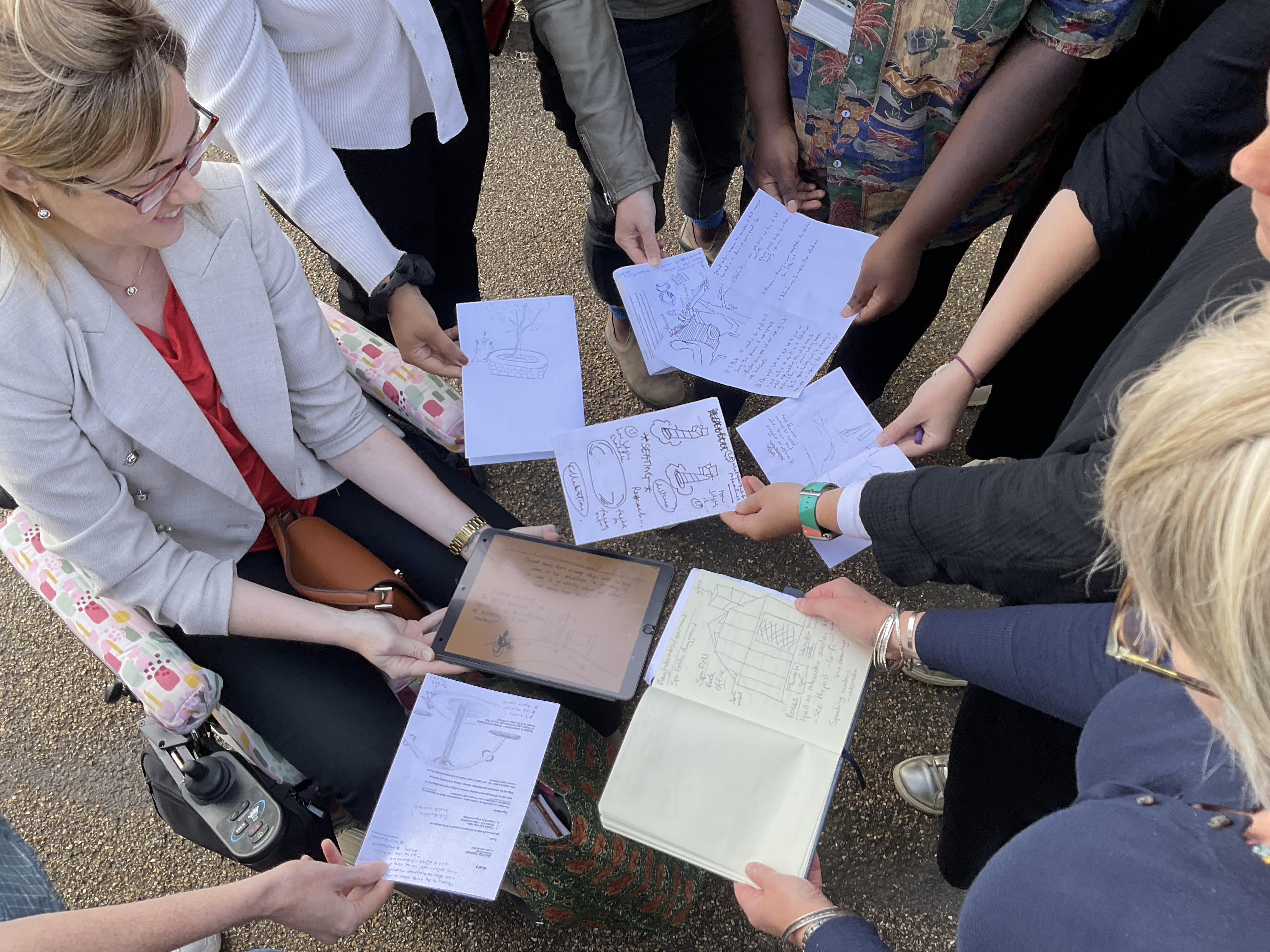Katrina Whale, PhD Researcher, University of South Wales
Introduction
This post aims to give the reader an overview of my doctoral research and my very first conference presentation. After working for several years with young people, in a variety of roles, I came to realise that practitioners cannot instigate change much higher than ground level. My doctoral research project aims to examine the experiences of young people who are suspected and/or identified as victims of child criminal exploitation. Attending the The Vulnerable Accused in the Criminal Justice System conference in Birmingham, in September 2023, was an excellent opportunity to speak about my proposed research to an attentive audience and it gave me the opportunity to network and to hear about other research in the field. Conference participants also provided me with their perspectives on my literature review and the methodology proposed for my thesis.
As a self-funded PhD researcher with a young family and a part-time job, the costs of attending conferences are normally prohibitive. I was successful in securing a bursary from the Socio-Legal Studies Association (SLSA). This covered my expenses, including overnight accommodation, thus enabling me to attend and present my paper. Whilst travelling to Birmingham from Wales by train, as I was polishing my notes for my planned 20-minute conference talk, I experienced an overwhelming feeling of imposter syndrome. What was I doing? Not only had the organisers accepted my abstract, but I had also won a bursary to support my attendance. I was terrified.
The Conference
Upon arrival at Birmingham University, I got lost. The setting was at least four times bigger than the University where I study. After I regained my bearings, I was welcomed with coffee and pastries in the conference reception area. As everyone was smiling, I relaxed, and this settled my nerves. The plenary talk by Professor Penny Cooper was really inspiring and covered her contribution to and the development of research exploring vulnerable defendants in the criminal justice system. A collection of inspirational works written by Penny can be found here [1]. The conference programme was packed with interesting and salient topics which made it hard to choose which sessions to attend. My research interests in vulnerable and accused young people guided my choice of the sessions to attend. The talks that most resonated with me were those on children and young people and their journeys through the criminal justice system. For example, Dr Kathy Hampson discussed conceptualising guilt in Child First Justice [2], and Dr Anne-Marie Day discussed the impact of the criminal justice system on neurodivergent young people [3]. Dr Miranda Bevan examined the experiences of children and young people in police custody [4], and Dr Jen Holmes and Professor Harriet Pierpoint explored the identification of the need and obtaining of appropriate adults [5]. I reflected on all the information, and this gave me ideas to explore within my own research.
The Thesis
The research presented at the conference was centred on my doctoral work that seeks to examine child criminal exploitation focusing specifically on the experiences of children in the youth justice system. The project aims:
- To explore the main barriers to identification of CCE and the impact on victim experience and pathways through the criminal justice system.
- To uncover the complexities of the responses to CCE from key stakeholders and how these shape the experience of children and young people.
- To consider the journey through the voice of a child or young person.
Whilst there is currently no universal definition of child criminal exploitation (CCE), adding to the difficulties in its quantification, the Home Office, Serious Violence Strategy [6] defines it as ‘where an individual or group takes advantage of an imbalance of power to coerce, control, manipulate or deceive a child or young person under the age of 18 into any criminal activity:
in exchange for something the victim needs or wants; and/or
- for the financial or other advantage of the perpetrator or facilitator; and/or
- through violence or the threat of violence.’
This research will use both quantitative and qualitative methods to explore the questions posed. A multiple case study design will be used, and access will be sought from two local authority areas in Wales, which reflect urban and rural settings. This is important to reflect geographical diversity and consider the possible impacts of these factors. A Purposive sampling technique [7] will be used in each area to identify children who are engaging with third sector agencies and statutory services and those who are deemed at risk/or suspected of being a victim of CCE.
The methods proposed for the research (subject to ethical approval) are:
- Unstructured observations of children and young people who are at risk of or are considered victims of CCE both within and outside of the criminal justice system.
- Semi-structured interviews of those supporting the children and young people observed both professionally and by those who have parental/carer responsibilities.
- Documentary analysis of case files, policies, and procedures.
- Freedom of Information (FOI) data analysis. Applications would be made to all local authorities in Wales to address questions around prevalence of CCE.
The Feedback
Despite my nervousness, which I worried might have affected the delivery of my presentation, it appeared to be well received by the audience. I was commended by other delegates for presenting a thesis at such an early stage. I felt empowered by the feedback, and it has encouraged me to pursue my plans to ensure that the research reflects young people’s voices. I received some incredibly helpful advice from Dr Miranda Bevan on how to ensure that the voices of children between the ages of 10 and 14 were heard through my research. It was very helpful to have had this input and advice, and it has encouraged me to traverse a more difficult path than that which I might have initially felt comfortable doing. This will need to be carefully considered when planning the research design and I will have to be attentive to ensure compliance with complex ethical responsibilities. The networking opportunities were plentiful, and I made several important contacts with whom I would not have connected otherwise. Delegates were receptive to my input and thus made me feel at ease.
To close, I write this as a converted conference-goer after attending The Vulnerable Accused in the Criminal Justice System conference. It was a well-organised and enjoyable conference, attended by thoughtful and inspirational participants. I look forward to attending the following conference and staying abreast of how this event and broader network develops in the future. You can access the blog post for my conference paper here: Vulnerable, misunderstood, and immeasurable? Reflections on the complexities of Child Criminal Exploitation. – Defending Vulnerability (wordpress.com).
[1] Penny Cooper, ‘Achieving accessible justice through effective participation in courts and tribunals’, Nuffield Foundation, Achieving accessible justice through effective participation in courts and tribunals – Nuffield Foundation
[2]Kathy Hampson, The centrality of ‘guilt’ in youth justice – conceptualizing ‘guilt’ for Child First justice, The centrality of ‘guilt’ in youth justice- conceptualising child ‘guilt’ for Child First justice – Defending Vulnerability (wordpress.com)
[3] Anne-Marie Day, ‘The Youth Justice System is harming neurodivergent children’, Comment | the youth justice system is harming neurodivergent children – Keele University
[4] Miranda Bevan, ‘Children and young people in police custody, an exploration of the experiences of children and young people detained in police custody following arrest’, Children and young people in police custody: an exploration of the experience of children and young people detained in police custody following arrest, from the perspective of the young suspect – LSE Theses Online
[5] Jen Holmes, Harriet Pierpoint ‘ Identifying the need for and obtaining appropriate adults (case study, interviews and statistical review)’, Bite-sized ‘take homes’ from the Vulnerable Accused Conference – Communicourt.
[6] The Serious Violence Strategy (2018), Home Office, Home Office – Serious Violence Strategy, April 2018 (publishing.service.gov.uk)
[7] Steve Campbell, Melanie Greenwood, Kim Walker, Purposive Sampling: complex or simple? Research Case Examples, (2020) 25(8) Journal of Research in Nursing.






Leave A Comment